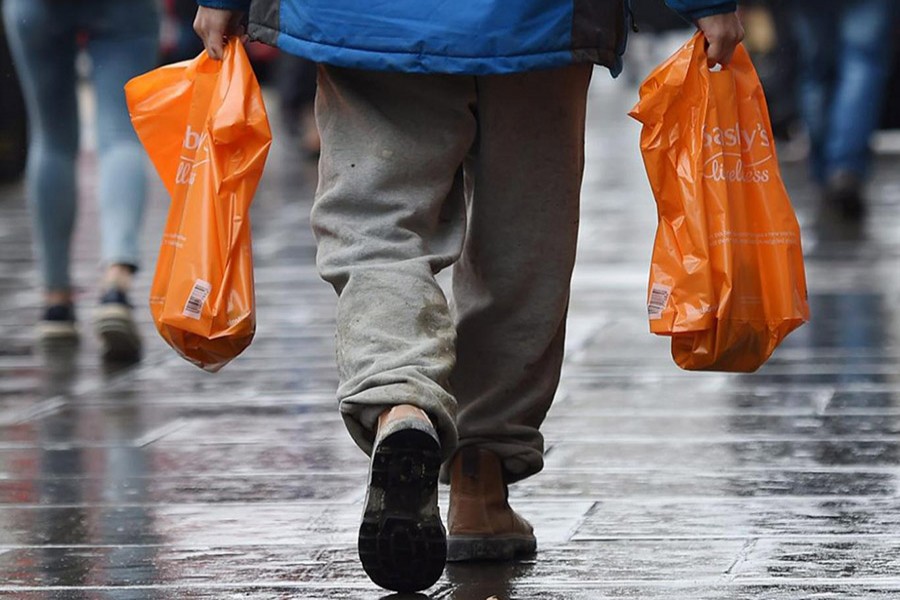
Published :
Updated :

Bags for life pose a food poisoning risk if they are used to carry raw foods such as meat and fish, a consumer watchdog is warning.
The Food Standards Agency says even if there is no leakage, packaging can harbour traces of harmful bacteria that can cause stomach bugs.
Shoppers should have separate bags for raw foods, ready-to-eat foods and household items such as detergent.
Reusable bags could be colour coded or labelled to avoid any mix-up, it says.
If there has been visible spillage, soiling or damage, plastic bags for life should be replaced, while fabric ones could be washed or cleaned.
"Even if there are no obvious spillages or staining after several uses, we would recommend that cotton/fabric bags for life be machine-washed regularly if they have been used for carrying raw items," the FSA website recommends in an updated post.
Contaminated food
Although instances are rare, shop-bought chicken is a potential source of infection.
Tests by the FSA have shown chicken packaging can carry a bug called campylobacter - the most common cause of food poisoning in the UK.
Campylobacter poisoning usually develops a few days after eating contaminated food and leads to symptoms that include abdominal pain, severe diarrhoea and, sometimes, vomiting.
Eggs, fish and loose vegetables with soil on can also pose a food poisoning risk, says the FSA website.
Large shops in England have been charging 5p for single-use plastic carrier bags for nearly two years.
However, they are not required to charge for plastic bags for certain products - including uncooked fish, meat or poultry products.
Carrier bag charges were introduced in Wales in 2011, in Northern Ireland in 2013 and in Scotland three years ago.


 For all latest news, follow The Financial Express Google News channel.
For all latest news, follow The Financial Express Google News channel.